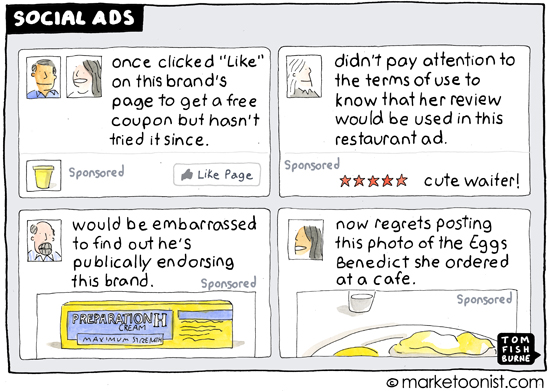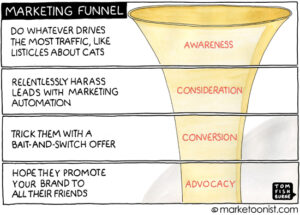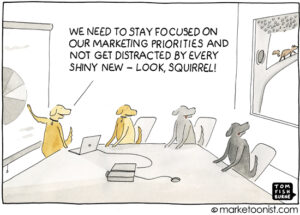The old adage goes, if you’re not paying for the product, you are the product. This has long been true of our data. Consumers pay for “free” services like search engines and social networks by letting companies collect and package their data so that marketers can target them more effectively.
Nowhere is this more visible than the increasing trend of bringing social context into the ads themselves — pairing an individual’s social actions with social ads shown to their friends. Facebook first led this move with Sponsored Stories, and has since baked social context into many of their ads. Google announced Shared Endorsements last year, where +1’s, reviews, and other social activities are integrated with ads.
There’s value to an advertiser in an implied endorsement. Social context helps make an ad more relevant. If we think that friends we know recommend a certain brand, we will be more likely to buy it.
Yet is the implied endorsement always real — particularly if it’s not freely given? Just because the terms of use (that no one really reads) lets people know a company will package social actions into an ad doesn’t mean that people intended their comments to be taken in that light.
The future of advertising will likely include a greater level of social context. Yet today it feels like social context is sometimes taken out of context.
I’d love to hear your thoughts on where social ads are headed.
(Marketoonist Monday: I’m giving away a signed cartoon print. Just share an insightful comment to this week’s post by 5:00 PST on Monday. Thanks!)



Julio says
This issue reminds of the concept of the “Paperless Office,” which was supposed to decrease the amount paper used in offices, but it actually increased it tremendously; in the sense that the Paperless Office became the “So much paper office that we have to cut down half of the rain forest to keep with the demand” because many people at that time were not comfortable with concept. As time passed by those people retired and new people came into the workforce and the concept of printing an email and filling it (yeah, people actually did that) became something we frown upon.
Currently, many of us are not comfortable with sharing this information, but there is whole generation at our heels that don’t care and many actually welcome it. I think it is great to test this concept now and have it ready for those that will put it to use the most in the future.
Emma says
I suspect most people realise by now that these sponsored stories and recomendations on Twitter/Google are meaningless because they aren’t genuine. Brands have gone for amount of data, rather than quality, by not putting in a step asking people if their ‘like’ can be used as an endorsement for the product. If that went in, people would understand that they really do mean it, and it could potentially allow people to add more detail as to why they recommend it.
The whole value of a recommendation IS context, and removing that takes away any point in the recommendation whatsoever.
Rob Blackie says
Isn’t the problem that we don’t have a shared language on permissions?
Most of us are willing to share quite a lot of data if the context is right. But we aren’t willing to spend much time understanding the context.
And, understandably, if not ideally, many brands realise that creating automatic opt-ins (or even the absurd Labour website that makes it impossible to optout on their splash page: http://www.labour.org.uk/) is a way to gather more data, if at the expense of long term relationships with people.
The problem is that good organisations can’t easily communicate the deal they are offering – so that opt-ins struggle to avoid gross simplifications or being misleading.
All of which is a long winded way of saying I love your cartoon.
Joe Hage says
It’s harder when a friend asks you to Like their page. I did so yesterday, as a show of support, but don’t want my friends to see it.
No real way to opt out of that, from what I can tell.
Mike Poynton says
Is it me? Or is the line blurring between marketing and advertising?
Jann Mirchandani says
Great article, and wonderful comments!
Context really is everything. It does seem as Emma and Rob say that these “reviews” are becoming meaningless.
I love Emma’s idea to ASK for permission to use these reviews to give the person an opportunity to add some substance – which is exactly what I do when I’m leaving a review. But this will take some spine on the part of the business as it will give reviews more opportunity to share the good as well as the bad and the ugly.
Mary says
Opt-in for permission to share likes, endorsements, etc. should really be the way to go–and would lend more credence to those “social ads,” since folks would know that their friends really meant to endorse those things!
Connie says
I think situations like this are why it is getting harder and harder to get people to interact with our brands as their data is used in ways that are clear to marketers but less easy to predict as a consumer.
Case in point – I happened to like a game on Google Play. It was rather embarrassing when I was discussing things with my doctor and she knew I had +1’ed the game because Google recognized her as someone communicating with me. It’s hard for a machine to deduce context in this case – I’m fine with my friends knowing about what games I like but its a little strange that someone I email for appointments and such was connected to me and Google chose to highlight my information for her!
I have also been seeing lately a lot of folks cleaning out their “likes” and “friends” lists on Facebook on a regular basis, because of what could be hidden in there (such as a page liked for a deal but not visited since). I suspect that will become more and more regular as such social endorsements become the usual in web advertising.
Tessa Stuart says
Connie’s point is a good one. Who doesn’t edit their Facebook page or their Twitter timeline to remove those casual enthusiasms?
I for one will never go to the hairdressing salon again that persistently demanded online reviews after I had been to it ONCE.
Businesses need to realise that their users are not always fans, they’re just…..users.
Allen Roberts says
Tom,
As you correctly point out, this use of our data is a part of the unseen price we pay for “free” use, and is not going away.
However, it seems to me that as we users become a bit more sophisticated and sensitive to the data use we will find that the business models of social platforms may morph a bit to enable paid access with limited data reuse. Having said that, the boundaries of so called “native advertising” are expanding to include things not really considered just a few years ago, largely because this is all being made up as the capability to collect and leverage data increases.
Jim says
I’m sure I’m not the only person with multiple identities on the same network specifically because I don’t mind if some things are shared (like photos I post), but do mind when other things are shared on my behalf (like progress in Candy Crush).
It’s annoying that lots of mobile games now require Facebook or G+ in order to save your game, and offer in-game incentives for you to advertise for them. My friends who don’t play games shouldn’t have to get spammed by all my conquests and requests, and so an alternate identities were born! Now I get all the in-game goodies, and the game company gets to advertise to an empty wall.